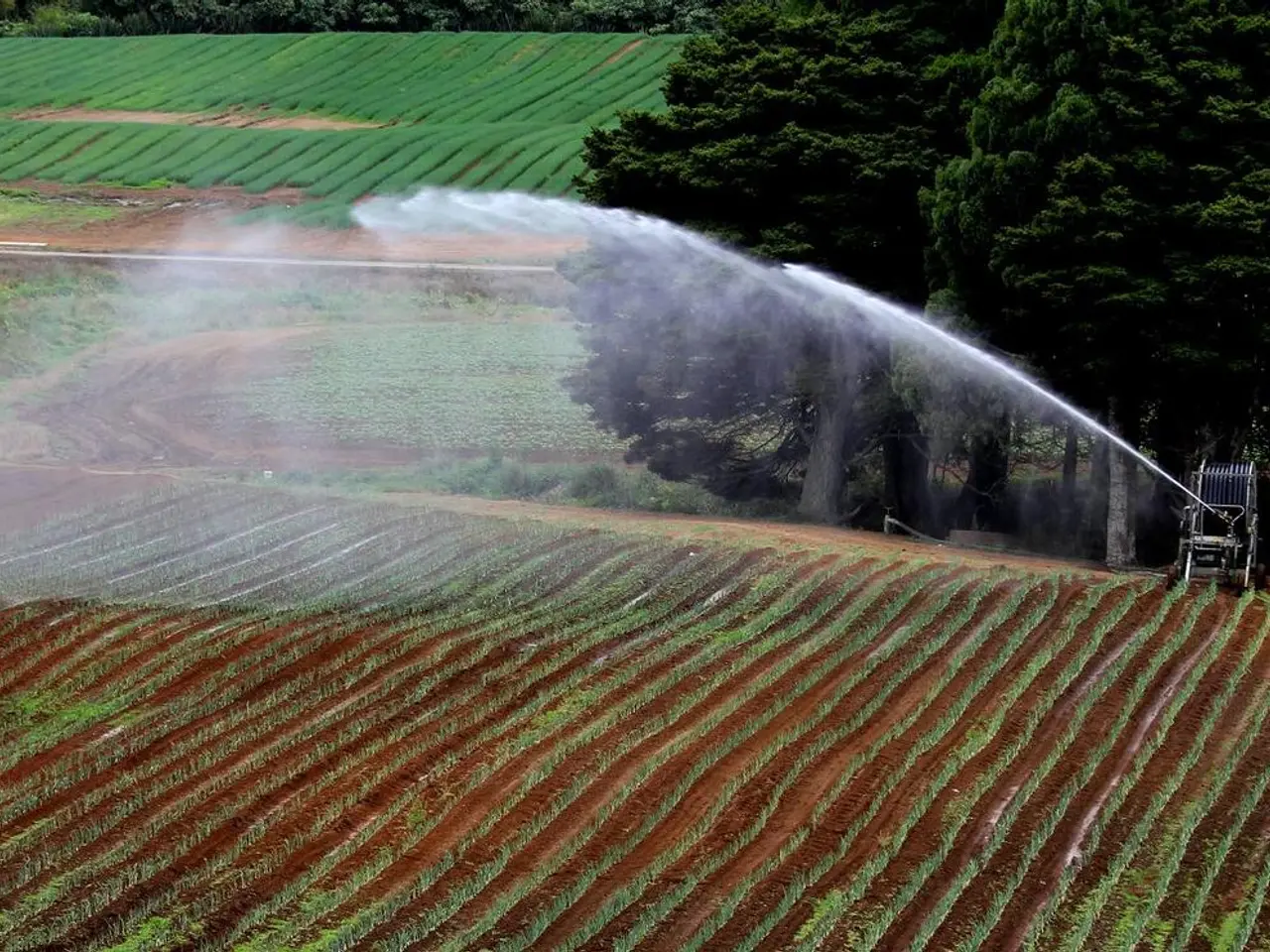City-Dwellers Embrace a Agricultural Lifestyle Originating from the Countryside
In the heart of India's IT capital, Bengaluru, tech professionals are seeking a change from the city's high-carbon lifestyle. They are finding solace in farming collectives, which offer a promising sustainable living model in southern India.
One such collective, Tamarind Valley Collective (TVC), was founded by Varun Pandey and Yathesh Kumar with the aim of reducing consumption, incorporating cyclical systems, and addressing issues like water scarcity, worsening air pollution, and plastic consumption. TVC is managed under the label WeCommunities, which helps build and manage farming collectives.
Another collective, Vanam Farms, is an 8.5-acre farm growing vegetables like beans and cabbage, run by Venkatachalam Krishnan and three others. Krishnan and his friends were inspired by chemical-free farming practices and the dairy industry's return to indigenous cow breeds.
These farming collectives offer several advantages for tech professionals seeking sustainable living. Increased farmer incomes and price stability are achieved by cutting out intermediaries and pooling resources, benefiting members economically. Many collectives adopt organic farming methods like vermi-composting, integrated pest management, and biofertilizers, which improve soil health and biodiversity, aligning with tech professionals’ sustainability goals.
The cooperative structure encourages community-led initiatives, knowledge transfer, and participation in certification systems, enhancing sustainable agriculture’s scalability. Practices like agroforestry within collectives offer additional income sources and ecological benefits, attractive for those transitioning from urban tech jobs.
However, these collectives also face challenges. Poor rural infrastructure, such as inadequate rural roads, irrigation systems, and cold storage facilities, limit timely market access, increase post-harvest losses, and reduce income, affecting collective sustainability. Scaling organic certification and market access is another hurdle, as while some local NGOs support organic markets, government backing and more coordinated efforts are needed to create premium prices and wider acceptance for organic collective produce.
Significant crop losses due to lack of storage and inefficient supply chains reduce collective profitability and sustainability. Agricultural innovations often fail to scale effectively due to lack of affordability, poor distribution models, and limited farmer engagement, posing challenges for collectives trying to integrate advanced methods.
Stronger institutional linkages, research investments, and policy interventions are crucial to address knowledge gaps and sustain collective farming models at scale. Shannon Olsson, a chemical ecologist and director of the Echo Network, supports urban farming and farming collectives for their potential in promoting environmental responsibility and accountability. Olsson emphasizes the importance of eating locally to reduce food miles and cut greenhouse gas emissions.
With more than half of India's 1.3 billion people depending on agriculture for a living, farmers' protests are gaining momentum in the country. Government initiatives have created Farmer Producer Organizations (FPOs) in India to help farmers with technology and financial support and connect them to fair price markets for their produce. Navin Horo, national project coordinator of the Climate Change Knowledge Network in Indian Agriculture, notes that FPOs now focus on teaching practices like using biochar to enrich the soil instead of burning agricultural residues.
Horo suggests that urban farmers engaging with local farmers can help better handle the socioeconomic aspects of environmental issues. At TVC, 52 families, including the author's, strive to balance farm-to-table culture with the lifestyle of the villagers in Thaggatti, working closely with the villagers and employing at least four families. Bengaluru's air quality index averages 110, which is unhealthy for sensitive populations.
In summary, farming collectives in southern India represent a promising sustainable living model for urban tech professionals by fostering organic agriculture, community engagement, and economic benefits. However, they require substantial improvements in infrastructure, market systems, innovation adoption, and policy support to overcome persistent challenges and achieve long-term viability.
- Tech professionals in Bengaluru find respite from the city's high-carbon lifestyle within farming collectives, like Tamarind Valley Collective (TVC) and Vanam Farms, representing a model for sustainable living.
- TVC, managed under WeCommunities, aims to reduce consumption, address water scarcity, air pollution, and plastic consumption, while Vanam Farms adopts chemical-free farming practices and indigenous breeds.
- These collectives offer benefits such as increased farmer incomes, price stability, organic farming methods, and community-led initiatives, aligning with tech professionals' sustainability goals.
- However, these collectives encounter challenges, such as inadequate rural infrastructure, limited market access, scaling organic certification, and ineffective agricultural innovation adoption.
- Shannon Olsson, a chemical ecologist, supports urban farming and collectives for their potential to promote environmental responsibility and accountability, emphasizing locally-sourced food to reduce food miles and greenhouse gas emissions.
- Navin Horo, from the Climate Change Knowledge Network in Indian Agriculture, believes that urban farmers can help handle socioeconomic aspects of environmental issues, while FPOs focus on teaching practices like using biochar to enrich soil, instead of burning agricultural residues.




